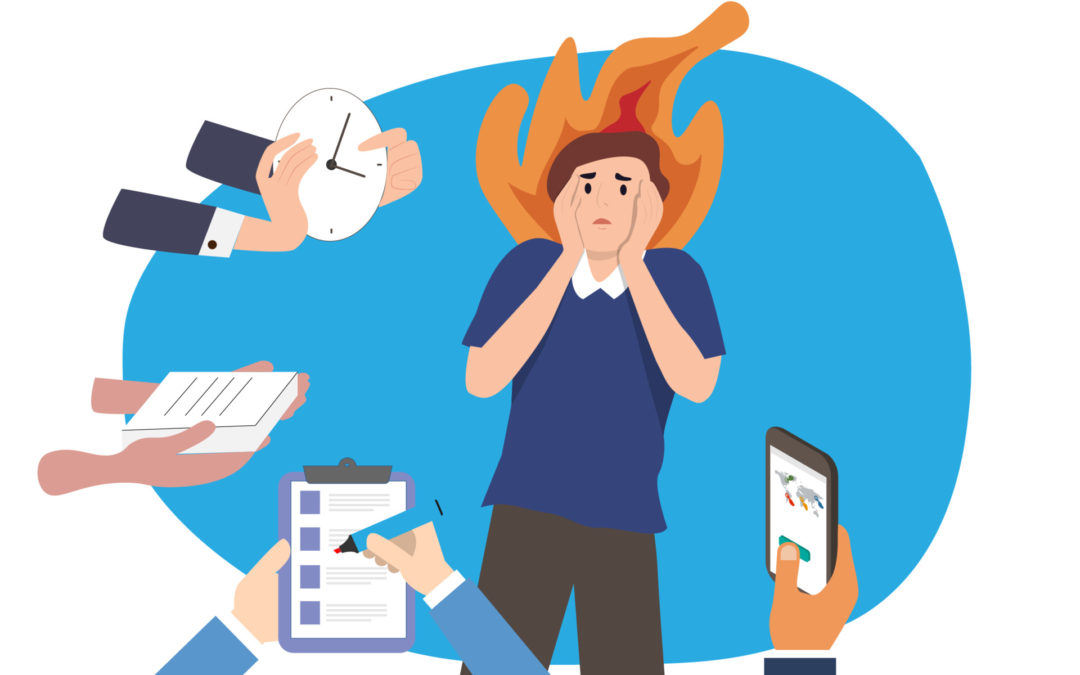Attention Deficit Hyperactivity Disorder (ADHD) is often associated with childhood, but it doesn’t magically disappear once a person reaches adulthood. Many individuals continue to grapple with ADHD’s challenges well into their adult years. In fact, research suggests that around 4-5% of adults worldwide are affected by ADHD, highlighting the significance of understanding and addressing this condition in the adult population.
See the unique challenges faced by adults with ADHD across various aspects of life, then explore practical strategies that can help adults with ADHD not only cope but also thrive below.
Challenges Faced by Adults with ADHD:
- Workplace Struggles: One of the most pronounced challenges adults with ADHD face is maintaining focus and organization in the workplace. They might struggle with tasks that require sustained attention and often find it hard to manage their time effectively. This can lead to difficulties meeting deadlines, forgetfulness, and impulsive decision-making. Additionally, adults with ADHD may have difficulties with tasks that involve multiple steps, making it hard to follow through on projects.
- Interpersonal Relationships: Building and maintaining relationships can be challenging for adults with ADHD. Their tendency to become easily distracted might make it difficult for them to fully engage in conversations, leading to misunderstandings or appearing disinterested. Additionally, impulsive behavior and emotional dysregulation can strain relationships, as adults with ADHD might unintentionally say or do things that hurt their loved ones.
- Self-Management: Basic tasks such as keeping track of appointments, managing finances, and organizing daily routines can become overwhelming for adults with ADHD. The executive functioning difficulties associated with ADHD can hinder their ability to plan, prioritize, and execute tasks efficiently, often leading to feelings of frustration and self-doubt.
10 Strategies for Coping and Thriving with Adult ADHD:
- Education and Self-Awareness: The journey to effectively managing ADHD begins with understanding the condition. Adults diagnosed with ADHD should invest time in learning about its symptoms, triggers, and potential impact on their lives. Self-awareness is key to recognizing the moments when ADHD traits might interfere with daily functioning.
- Structured Routines: Establishing a structured daily routine can provide a sense of stability for adults with ADHD. This includes setting specific times for tasks such as work, meals, exercise, and relaxation. Incorporating reminders, alarms, or scheduling apps can help maintain focus and prompt task completion.
- Task Breakdown: Breaking tasks into smaller, manageable steps can make them less overwhelming. Adults with ADHD can use techniques like the Pomodoro Technique, where they work for a focused period (e.g., 25 minutes) followed by a short break. This approach can enhance productivity and reduce the risk of burnout.
- Organization Strategies: Developing effective organizational systems can greatly benefit adults with ADHD. This might involve using tools such as to-do lists, digital calendars, and color-coded reminders to keep track of responsibilities. Physical spaces should also be organized and clutter-free to minimize distractions.
- Mindfulness and Meditation: Practicing mindfulness and meditation can help adults with ADHD enhance their attention control and emotional regulation. These techniques encourage staying present in the moment, which can be particularly valuable for individuals prone to impulsivity and distraction.
- Effective Communication: Improving communication skills can help adults with ADHD in both personal and professional relationships. Active listening, asking for clarification when needed, and expressing oneself clearly can mitigate misunderstandings and foster stronger connections.
- Medication and Professional Support: In some cases, medication can be an essential part of managing ADHD symptoms. Consulting a mental health professional, such as a psychiatrist or therapist, can provide personalized guidance regarding medication options and therapeutic strategies.
- Exercise and Nutrition: Regular physical activity and a balanced diet can contribute to better cognitive functioning and emotional well-being. Engaging in activities like yoga, jogging, or swimming can help release excess energy and improve focus.
- Goal Setting: Setting realistic and achievable goals is crucial for adults with ADHD. Breaking larger goals into smaller milestones can provide a sense of accomplishment and motivation. Celebrating these small victories can boost self-esteem and overall outlook.
- Support Networks: Building a support network of friends, family, or support groups can offer encouragement and understanding. Sharing experiences and strategies with others who have ADHD can provide a sense of community and reduce feelings of isolation.
ADHD is a condition that doesn’t discriminate based on age, and its impact on adults can be significant. Understanding the unique challenges faced by adults with ADHD in areas such as work, relationships, and self-management is crucial for developing effective strategies to cope and thrive. By adopting strategies like structured routines, task breakdowns, organization techniques, and seeking professional support, adults with ADHD can harness their strengths, manage their symptoms, and lead fulfilling lives. It’s important to remember that each person’s journey with ADHD is unique, and finding the right combination of strategies might take time, patience, and self-compassion.

